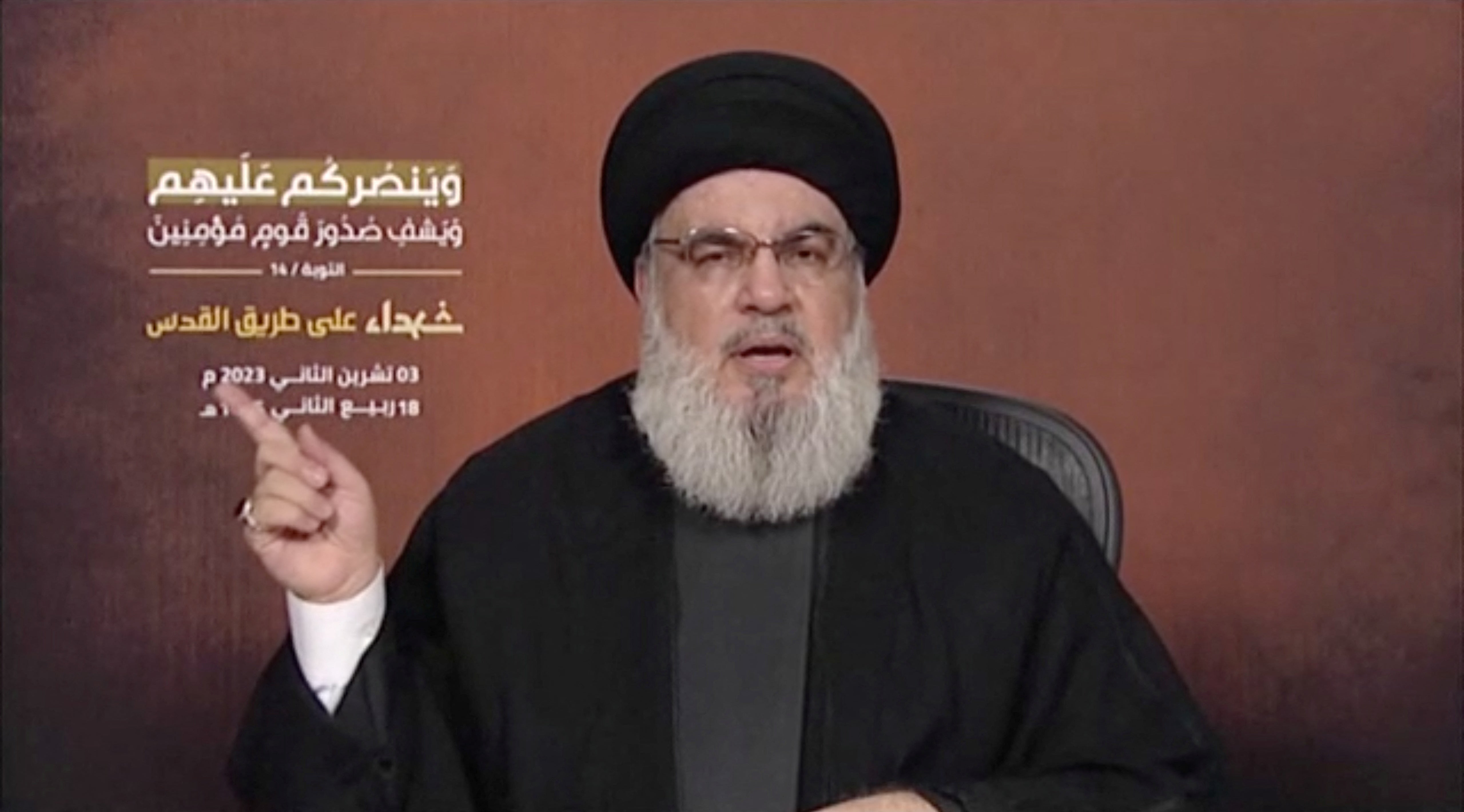Hezbollah leader stops short of declaring full-scale war with Israel – but leaves the door open
As one of the leading figures in the Arab world, there has been trepidation in the West about what Sheikh Hassan Nasrallah might say, writes Kim Sengupta. But there appears little current appetite for a larger escalation


The first speech by Sheikh Hassan Nasrallah, the Hezbollah leader, since the start of this bloodiest of the Gaza wars, was awaited with both anticipation and trepidation by the international community.
The sheikh is one of the leading figures in the Arab world and a key figure in the “axis of resistance” – consisting of Iran, Syria, Hezbollah, Hamas, Iraqi Shia militias and the Yemeni Houthis – against the US and Israel.
The fiery speeches of Nasrallah were a prominent feature of the 2006 conflict between Israel and Hezbollah in which both sides experienced significant military losses and a million Lebanese and up to half a million Israelis were displaced.
There had been deep concern in the West that Nasrallah, wearing the black turban of the sayyed, a descendant of the prophet Mohammed, would use the address to thousands of adherents to declare the opening of a “resistance front” against Israel as part of a concerted mission with Hamas
Instead, the Hezbollah leader said that the 7 October raid, in which 1,400 people were killed in Israel, was entirely the work of Hamas without others in the axis even being consulted. The whole thing, said the sheikh, had been kept secret from them.
“This glorious, blessed large-scale operation was a hundred per cent Palestinian in terms of decision and execution,” he said. “The Palestinians had kept it secret”. The secrecy, he explained, was “a requirement” for success.
Those who had expected a major military announcement had misunderstood the situation, said Nasrallah. Hezbollah and Lebanese forces have, in fact, been involved in the war since “the very first day”.
He continued: “Some claim we are about to engage in the war. I am telling you, we have been engaged in this war since October. The Islamic resistance and Lebanon started operations the very next day.” He went on to complain that some observing the clashes with the Israelis on the Lebanese border saw them as “minimal” when they were, in fact, “sizeable”.
It is true that rocket fire, artillery duels, and Israeli airstrikes have resulted in more than 70 deaths in Lebanon – Hezbollah and Hamas fighters attached to the Lebanese militia, and civilians. The Israeli authorities say nine have died on their side of the border, eight soldiers and one civilian.
Hezbollah has not so far used its long-range missiles, cleared the Lebanese villages near the border or mobilised its reserves, any of which would be a signal that it was preparing for war.
The level of engagement may rise, said Nasrullah, adding: “I assure you, this will not be the end.” But some predicted red-line escalation by Hezbollah, such as Israeli troops going into Gaza City, were not raised.
Hezbollah could ratchet up what it’s doing, continuing with skirmishes, tying up Israeli forces. But there appears to be little appetite for a full-scale war in Lebanon, a country suffering severe economic problems, something Hezbollah is said to be fully aware of.
Lebanon’s caretaker prime minister, Najib Mikati, who has the backing of Hezbollah, said: “I am doing my duty to prevent Lebanon from entering the war, Lebanon is in the eye of the storm ... For now, Hezbollah has managed the situation rationally and wisely, and the rules of the game have remained constrained.”
Mikati warned, however, that the rules may change if the civilian deaths in Gaza, more than 9,000 now, continue to rise and there is inadequate aid for the stricken population.
"A humanitarian ceasefire for five days is necessary, where there can be active international talks to secure prisoner swaps and reach a permanent truce in order to reach an agreement on the conditions for regional peace," he said.






Join our commenting forum
Join thought-provoking conversations, follow other Independent readers and see their replies
Comments